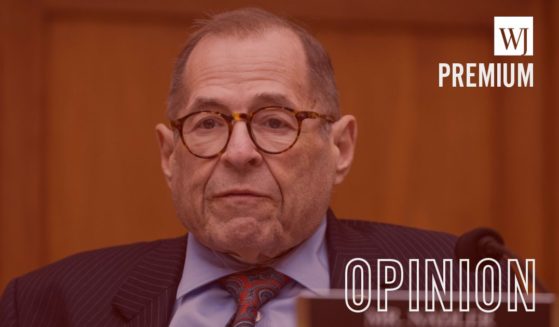
Education Establishment Frets as Conservatives Seek to Take Over School Boards Around the Country
A racial reckoning began years ago for the Guilford school system, first with an episode in which a student wore blackface makeup to a home football game and then a fraught debate over the elimination of its mascot, the Indians. After the killing of George Floyd, district leaders announced they were doubling down on efforts to address social justice and racism in schools and teaching materials.
But an organized pushback began last year with a petition for the superintendent’s removal. This summer, conservative activists won the GOP’s endorsement for school board, knocking out three incumbents in the Republican caucus. In next week’s elections, they aim to seize control of the school board.
The top issue on their platform is to fight critical race theory, which has become a rallying cry for activist candidates in the Nov. 2 elections all over the country who take issue with how schools have addressed diversity and inclusion.
The school board elections will test the durability of conservative efforts to take on “equity” initiatives, with much at stake. Where opponents see efforts to stop liberal indoctrination, incumbents and school administrators fear takeovers could result in school board members becoming thorns in the side of professional educators.
Interest in school board seats has surged, with national conservative groups and state-level efforts encouraging challenges by right-leaning newcomers amid debates over COVID-19 mask mandates, gender-neutral bathrooms, and critical race theory.
In Guilford, a New Haven suburb of 22,000 on Connecticut’s shoreline, Superintendent Paul Freeman said the district’s work on race and equity intensified after last year’s debate over the mascot, which is now the Grizzlies, and the 2019 blackface episode at a game against a team from Hartford.
Students and young alumni, he said, called on the school system to do more on topics of race and equity so graduates would not feel sheltered.
Freeman said the work has included a self-audit of curriculum to ensure materials do not reflect “implicit bias” and include authors with diverse experiences and backgrounds. In eighth grade, for one example, he said students learn about enslaved people who lived in Guilford so they do not see the Colonial period in an idealized way.
Freeman was criticized for assigning administrators to read books including “White Fragility: Why It’s So Hard for White People to Talk About Racism.” One national group, No Left Turn in Education, organized a June forum in Guilford on the threat of critical race theory.
One of the five candidates on the slate opposed to critical race theory, Danielle Scarpellino, a local business owner, said in an appearance on “ Fox & Friends First ” in July that it was district leaders who were introducing politics into schools, saying students were “being used as political pawns.” None of the candidates responded to interview requests from The Associated Press.
Another candidate, Tim Chamberlain, said on a campaign website that his child’s teachers have “tried to persuade him to abandon his conservative viewpoint” during discussion of topics ranging from global warming to affirmative action.
Independent and Democratic candidates have joined forces to campaign against the anti-critical race theory candidates. Among them is Kristy Faulkner, a molecular biologist and zoning board of appeals member who signed up to run after she said her rivals turned equity and inclusion into bad words.
She said she also worries that if the newcomers win, they would not find any middle ground with the existing school board members.
“I’m just envisioning basically a total meltdown of productivity on the board,” she said.
It’s unclear how many of the thousands of U.S. school board races include conservative newcomers, but there are examples around the country.
In Ohio, the number of school board candidates has ballooned by 50 percent from four years ago, according to the Ohio School Boards Association. Almost half of the 2,600 candidates are political newcomers, including many whose anger has been stoked by critical race theory.
Seven candidates are running for just three seats on the school board in Chagrin Falls, a suburb of Cleveland where some parents have objected to “racial inclusion” policies. In nearby Rocky River, a conservative slate taking aim at critical race theory is running on the slogan: “Education not activism.”
In communities where mask mandates are attracting the most attention in school board races, as in Dover, New Hampshire, some candidates have also questioned approaches to diversity and inclusion. Several newcomers in Dover have said discussions of diversity should be broadened beyond race, and one candidate has spoken out against critical race theory.
The Western Journal has reviewed this Associated Press story and may have altered it prior to publication to ensure that it meets our editorial standards.
Truth and Accuracy
We are committed to truth and accuracy in all of our journalism. Read our editorial standards.
Advertise with The Western Journal and reach millions of highly engaged readers, while supporting our work. Advertise Today.












